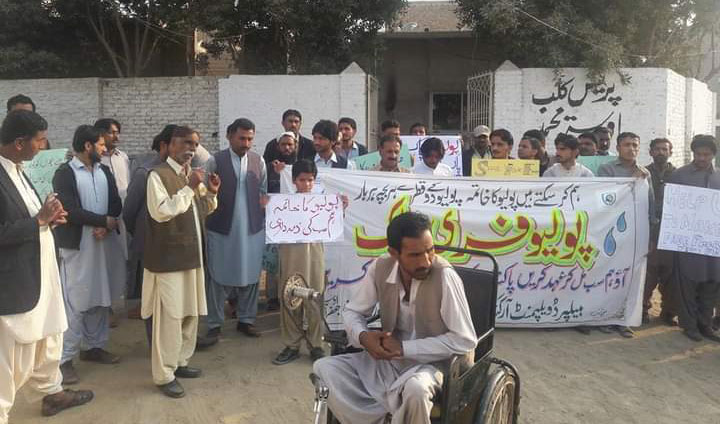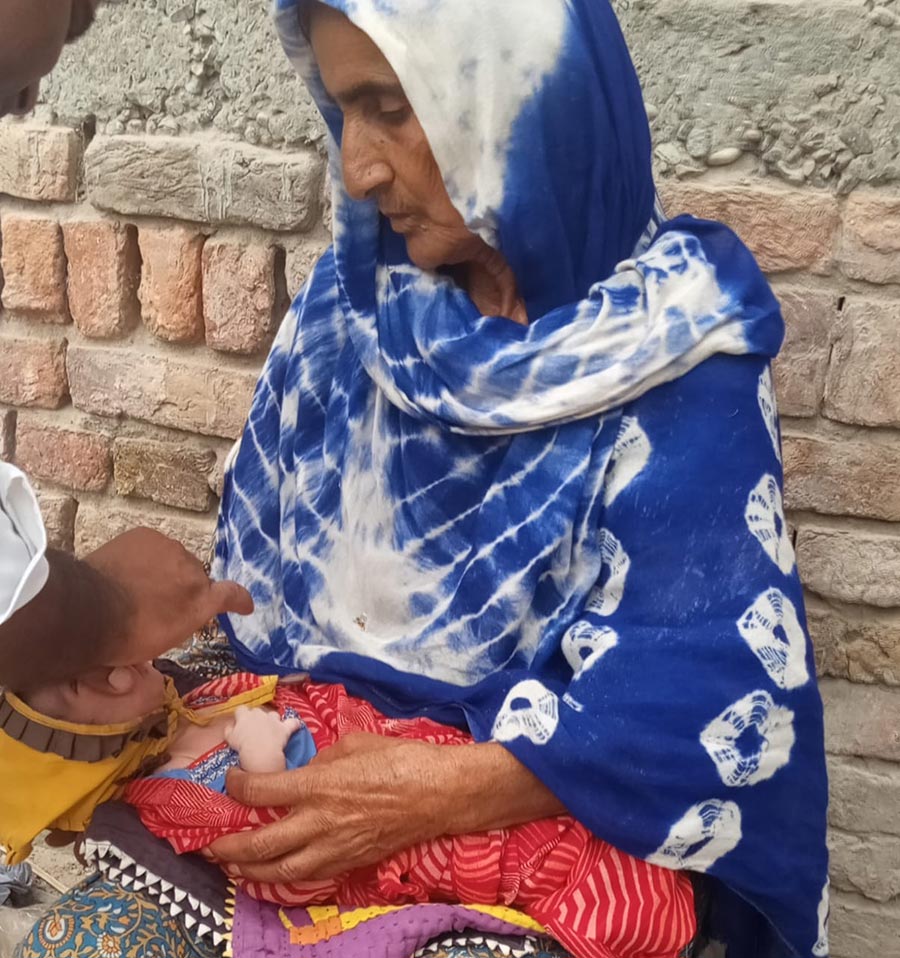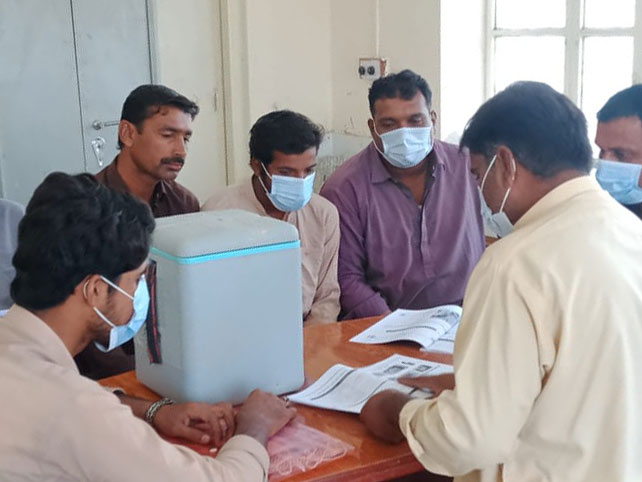Pakistan reignites polio vaccination drive
Civil society, media, local influencers, celebrities, religious scholars, and frontline workers are all reinforcing the Pakistan government’s fight against Poliomyelitis.
- 17 January 2022
- 4 min read
- by Saadeqa Khan

On a frosty morning in January 2021, Junaidullah and a couple of colleagues were heading to Karak, a remote town in the Khyber Pukhtoon Khawah (KPK) province of Pakistan. He was due to kickstart a polio vaccination drive after a six-month delay due to COVID-19.
Karak and adjoining areas are considered “red zones” by the provincial authorities as 15 out of the province’s 22 polio cases have been reported in these areas after the disruption of polio vaccination drives in 2020. But Junaidullah never made it to Karak. Two gunmen opened fire on the van, resulting in his death as well as that of a police guard accompanying the team.
“Pakistan's government is fully aware of the cross-border circulation of virus between Pakistan and Afghanistan. The health care bodies are focused and now working on a robust mechanism to address the rising polio cases,” says Dr Shahzad Baig, a coordinator at Pakistan’s polio eradication programme.
Since 2012, more than 70 polio workers have been targeted across Pakistan. The militants believe that vaccination drives are all foreign-funded and used by the Western countries as a cover for spying.

Photo credit: Saadeqa Khan
After the incident, the polio immunisation drive in KPK was put on hold. Meanwhile, 285,000 frontline polio workers are carrying on with vaccinations in other parts of the country, under tight security.
The Polio Eradication Initiative (PEI), provincial administrations, local influencers, and frontline workers are committed to ensuring that every child is reached with the polio vaccine, even in Pakistan’s most inaccessible areas.
Disruption to the immunisation drives
Pakistan’s efforts to eradicate polio had been progressing well. The country was close to becoming polio-free in 2018 with only 12 cases reported. However the number started increasing in 2019, reaching 129 cases.
In the same year, the P2 virus strain was also reported in Pakistan with 22 confirmed cases, a significant setback considering the country was declared P2 strain-free in 2014.
The efforts to eradicate the disease were then hit hard by the emergence of COVID-19. Pakistan delayed a polio vaccination campaign in April 2020 following a directive from the Global Polio Eradication Initiative (GPEI).
By July 2020, 107 polio cases had been reported in the Sindh and Balochistan provinces.

Photo credit: Saadeqa Khan
“There are multiple reasons that have contributed to Pakistan’s failure to completely eradicate polio, including low immunisation coverage, poverty, illiteracy, lack of access to immunisation, and fewer community health services,” says Dr Mohsin Khursheed, a PhD in microbiology from the Institute of Antibiotics, Fudan University Shanghai, China.
“The diverse geography of Pakistan, which encompasses mountain ranges, glaciers, deserts, and harsh terrains, plus huge differences in population density, also have an adverse impact on health service delivery.”
Have you read?
He adds that vaccine hesitancy is another factor influenced by illiteracy, as well as socioeconomic, cultural and religious factors. For example, a common misconception is that vaccines can sterilise children or contain derived pig products, which is forbidden in Islam.
Four successful vaccine rollouts
“Pakistan's government is fully aware of the cross-border circulation of virus between Pakistan and Afghanistan. The health care bodies are focused and now working on a robust mechanism to address the rising polio cases,” says Dr Shahzad Baig, a coordinator at Pakistan's polio eradication programme.
“With proper monitoring, ensuring security of frontline workers and educating parents about the significance of vaccination, Pakistan has successfully completed four immunisation campaigns during 2021,” Dr Baig adds.
The fourth immunisation campaign was held in December 2021, and more than 40 million children in 156 districts received the polio vaccine with the supplementary dose of Vitamin A.
Baig explains that this campaign also facilitated COVID-19 vaccination, and children from 12 to 18 years old received the Pfizer vaccine, while Sinovac was administrated to the 18-plus population in 31 high-risk districts of Pakistan. This campaign was administered under the National Command Operation Center (NCOC).
“The greatest challenge before us is to counter long-held fears of parents driven by the myths and fake propaganda against vaccination,” says Babrak Jamali, who vaccinates kids in remote areas of Balochistan.

Photo credit: Saadeqa Khan
“During the three-day immunisation campaign in December 2021, we took local influencers on board to convince parents about the seriousness of the crippling disease and that they shouldn't endanger the lives and health of their kids,” Jamali adds.
The importance of education and awareness has been recognised and religious scholars, media, and civil society are, with the government and other partners, regularly making people aware of the significance of vaccines, whether for poliomyelitis, COVID-19, measles, or other viral diseases.
More from Saadeqa Khan
Recommended for you








